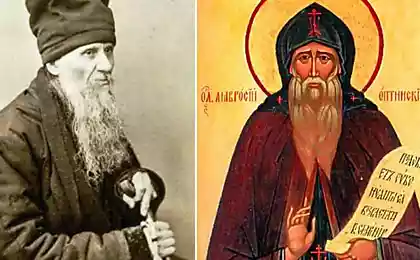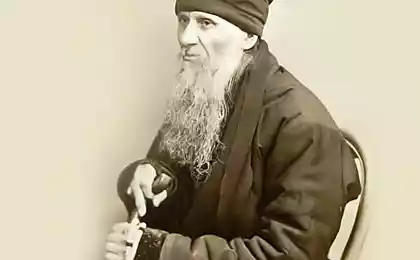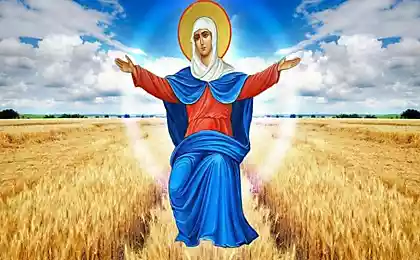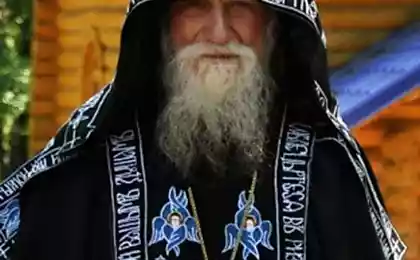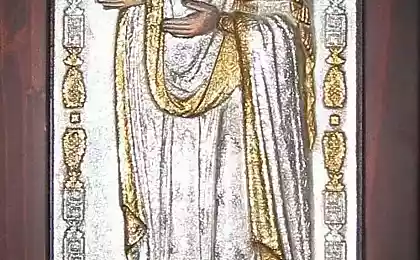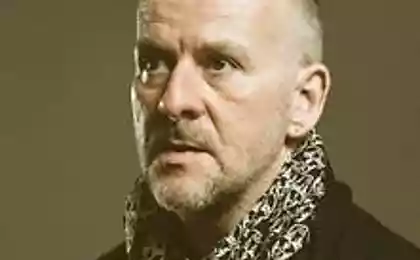550
The advice of the great elders of the NINETEENTH century Ambrose of Optina
"To live — not to grieve, no one to condemn, no one to annoy and show respect to all"
Counsel of elder Ambrose of Optina
Publish an excerpt from the book of the publishing house of the Sretensky monastery: "the Biography of Optina elder Ambrose Hieroschemamonk Ambrose".
The advice and guidance of their own, which the elder Ambrose used the soul came to him with faith, he taught, or often in private conversation, or in General to all around him in the form of a very simple, sketchy, and often humorous. It should be noted that a joking tone in the elder's instructional speech was his trademark.
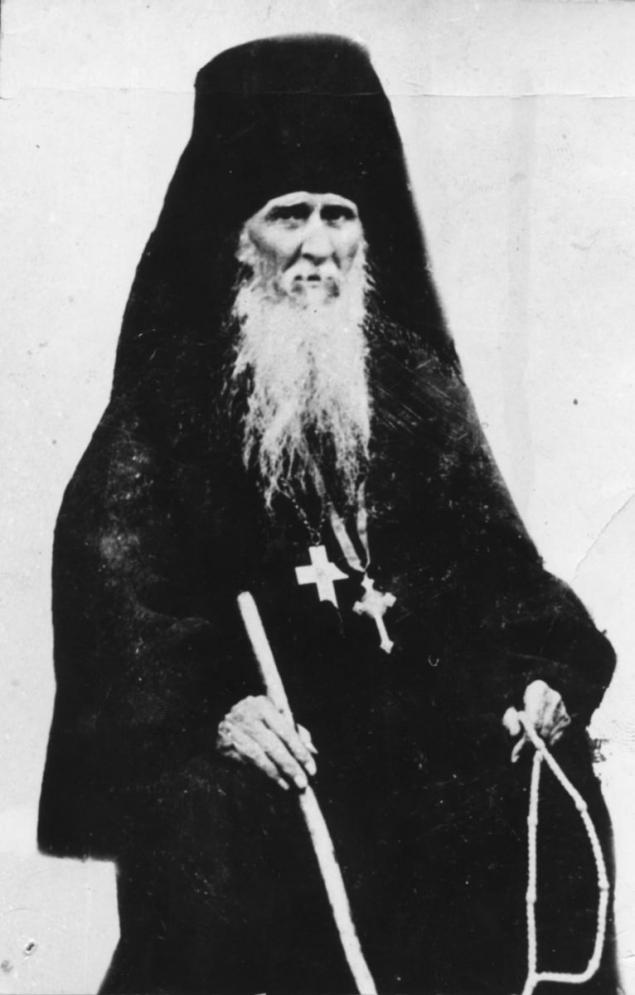
"How to live?" heard a man on all sides common and very important question. As usual he answered jokingly: "to Live — not to grieve, no one to condemn, no one to annoy and show respect to all". This storchevoy the tone of speech is often evoked a smile on the lips of the frivolous listeners. But if more serious to go into this instruction, each will see in it a profound meaning.
"Do not grieve" — i.e. that the heart is not fond of the inevitable human afflictions and setbacks, heading for the one Source of eternal sweetness to God; through which people in countless and diverse troubles can calm yourself, tolerating, or "resigned". "Not to condemn" "not to offend". — Nothing usually between people judgmental and offensive-those twin offspring of destructive pride.
They are sufficient to relegate the human soul in the depths of hell, but they are more Elder Ambrose part and a sin are not considered. "Greetings and salutations" indicates the Apostle's commandment: to honor one another (ROM 12: 10). Bringing all these thoughts to one General, we see that the above dictum was preached by elder primarily the humility, the basis of the spiritual life, the source of all virtues, without which, according to the teachings of St. John Chrysostom, as mentioned before, it is impossible to escape.
On the proposed elder General question: "How to live?" sometimes he answered slightly differently: "to live without hypocrisy and behave roughly; then our case will be true, otherwise will be bad".
"We have, — still spoke the old man to live on earth as the wheel turns: just only one point touches the ground, and the rest is sure to move on up; and we'll go down to the ground and can't stand up".
"Our salvation must s dress between fear and hope"
The question of how a righteous, knowing that they live according to the commandments of God ascended of his own righteousness, the elder replied: "They don't know what awaits them at the end." "Therefore, — he added, — our salvation should s dress between fear and hope. Nobody in any case should not despair, but should not hope too".
Question: can you seek perfection in the spiritual life? The answer of the elder: "Not only can you ask for, but should try to improve in humility, i.e., to consider themselves in the sense of the heart is worse and lower than all men and to every creature."
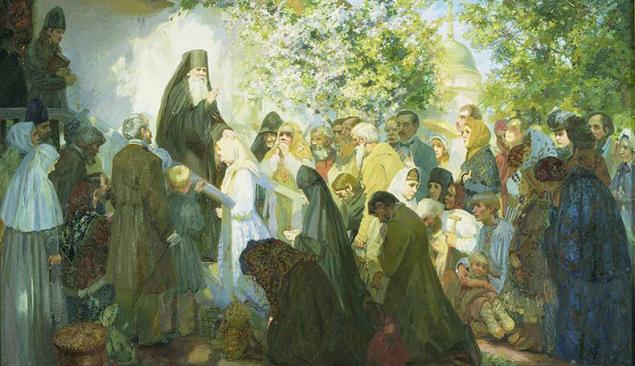
About patience: "When it annoys you, don't ever ask why. Scripture for it nowhere. So, on the contrary, it is said: if someone strikes you on Desnou the cheeks, turn to him the other also. In Desnou lanita actually hit uncomfortable, and it need to understand this: if who you slander the innocent, or something annoying, — it would mean the stress in Desnou the cheeks. Do not complain and take the blow patiently, substituting herein the left lanita, i.e., remembering their wrong deeds. And if, perhaps, you're innocent, then they've sinned a lot; and make sure that they are worthy of punishment."
If any of the brethren, cowardice and impatience, grieved that his not soon submit to the mantle, or ierodiakonou and ieromonachou, the old man used to say so in a warning: "This, brother, everything will come in due time, shall be given; kind deeds nobody will give".
"Not to indulge in irritability and anger, should not be in a hurry"
On irritability: "no One needs to justify their irritation with what else disease — it comes from pride. And the wrath of man according to the word of St. James the Apostle, worketh not the righteousness of God (Jas 1, 20). Not to indulge in irritability and anger, should not hurry."
Talking about envy and pamatskolai, the elder said, "you Have to force yourself, though against their will, to do any good to his enemies; and most importantly — not to avenge them and to be careful, something would somehow not offend their view of contempt and humiliation".
"Love, of course, above all. If you find that you don't have love, wish to have it, then do deeds of love, although at first without love. The Lord will see your desire and effort and heart of love."
"Who has a bad heart should not despair, because with God's help a person can correct his heart. Just be sure to follow him and not to miss the opportunity to be helpful to others, often to open the elder and to do all possible charity. This, of course, cannot be done suddenly, but the Lord is patient. Then he only ends the life of a man when he sees him ready to enter eternity or when he sees no hope for his correction."
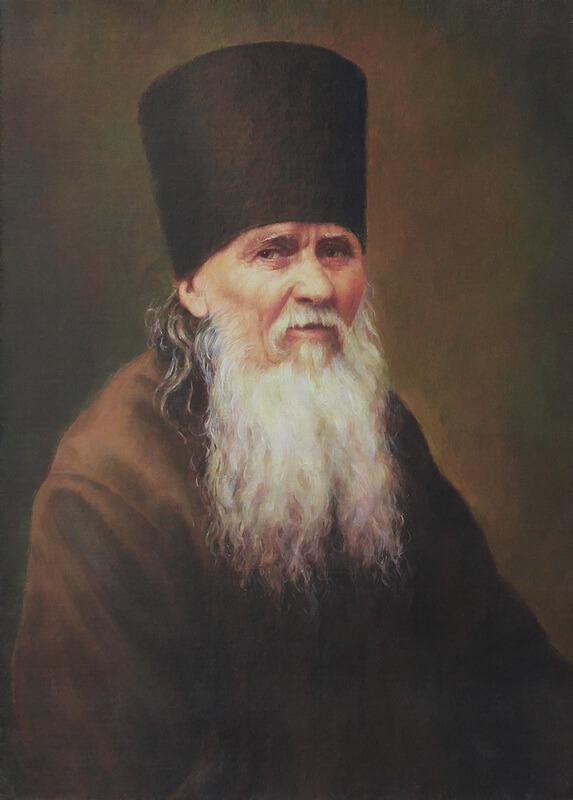
Charity elder Ambrose said: "St. Dimitry of Rostov writes: if I come to you people on the horse, and asks of you, give him. He will use your charity, you are not responsible".
Again: "St. John Chrysostom says: start to give to the poor, you don't need that you have lying around; then he'll be able to give more and even depriving yourself, and finally be ready to give and all that you have."
The question of how to understand the words of Scripture: be wise as serpents (MT 10, 16), — the old man explained: "Snake, when you need it to change its old skin for a new one, goes through a very tight, narrow place, and thus it is convenient to leave your old skin: and a man, wishing to divert its decay must follow the narrow path of the gospel's commandments. At least the attack of the serpent is trying to protect his head. People should more often to protect their faith. Yet faith is saved, you can still fix everything."
"Atheists have no excuse"
"I spoke to the priest writes to his spiritual daughter, the same family that I am sorry for them all — they don't believe in anything, neither in God nor in the hereafter; it is a pity because they can be, and not blame themselves, they were brought up in such unbelief, or was it some other reason.
The priest shook his head and so angrily said, “Atheists have no excuse. After all, all decisively, and to the Gentiles preached the gospel; finally, by nature all of us from birth is embedded a sense of knowing God; therefore, they are to blame. Are you asking for people to pray? Of course, to pray for all of you”. “Father! I said after that. — Can't feel the future life is full of bliss one that close relatives will suffer in hell?”
And the priest said, “No, there that feeling will be gone: Pro all then forget. It is still on the exam. When you go to the exam, more scary and crowded, heterogeneous thoughts, and come, bought a ticket (with answer), about the forgotten,"".
Came to the elder a gentleman, not believing in the existence of demons. The master said, "your Will, father, I don't even know what it's for demons." To this the elder replied: "Because not everyone understands the math, but it exists."
About the laziness and despondency: "Boredom — depression grandson, and daughter Leni. To drive her away, in trouble, in prayer, do not be lazy; then boredom will pass and zeal will come. But if to this patience and humility add, that from the many evils will save".
About the insensitivity and fearlessness, about the sudden death of S., the father said, "Now death is not around the corner, and behind, and we at least count on the head teshi".
"Now death is not around the corner, and behind, and we at least count on the head teshi"
Another said: "If on one end of the village will hang up on the other end will not cease to sin, saying: we will not soon come".
About the power of repentance told me the following: "all have sinned and repented, and so all his life. Finally repented and died. The evil spirit came for his soul and says he is mine. God says: no, he repented. “Yes, because even though I repented and again I sinned,” continued the devil. Then the Lord said to him, “If you, being angry, took it again to himself after he repented to Me, then how can I not accept it after he sinned, again addressed to Me with repentance? You forget that you're angry, and I'm good"".
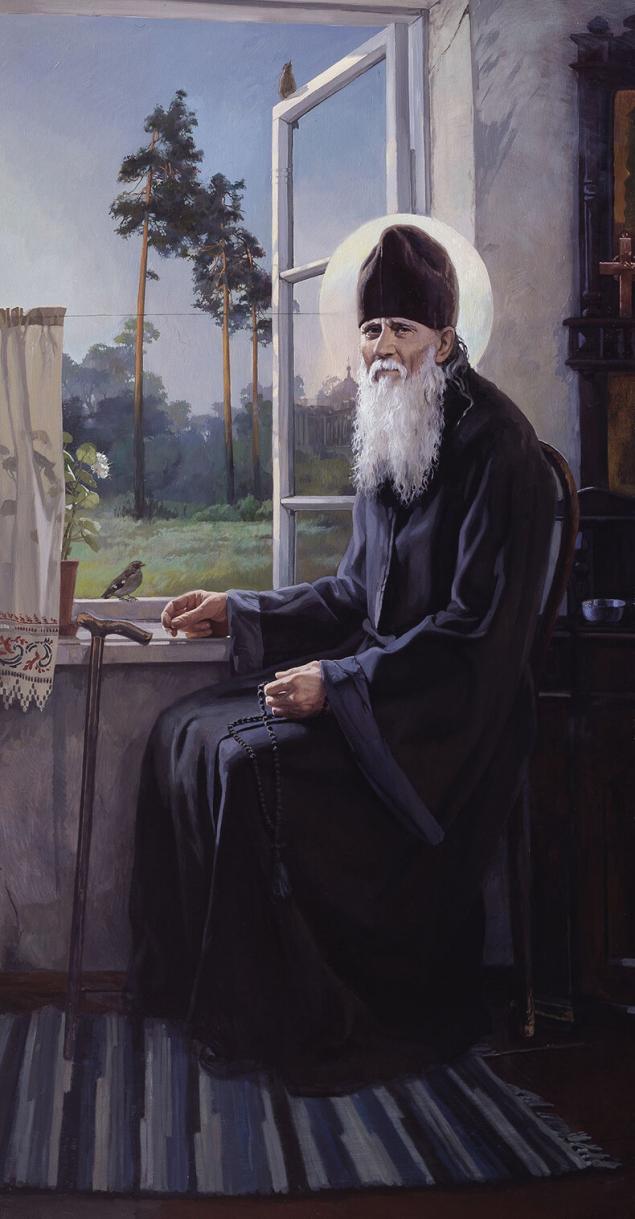
"It happens, — said the priest — that though our sins through repentance and forgiven us, but conscience does not cease to reproach us. The late elder father Macarius for comparison showed sometimes your finger, which long time ago was cut: the pain is long gone, but the scar remained. Exactly and after the forgiveness of sins, the scars remain, i.e., the reproaches of conscience."
"Even though the Lord forgives the sins of the penitent, but all sin requires punishment purification. For example, to the penitent thief Lord Himself said, to day shalt thou be with Me in Paradise (Luke 23, 48); whereas after these words broke his leg; and what was still in the same hands, with broken legs hang on the cross for three hours? So he needed a cleansing suffering. For the sinners who die immediately after repentance, the cleansing are the prayers of the Church and praying for them, and those who are still alive, they themselves must be cleansed by amendment of life and charity to cover sins."
"Cross (i.e., a purifying suffering, both spiritual and physical) God does not create. And no matter how grievous happens to that person cross that he carries in life, and yet the tree from which it is made, always grows on the soil of his heart". Pointing your heart, the priest added: "the Tree in izhodisca water — bubbling water there (passion)".
"When the people spoke the old man walks the straight path to him and the cross was gone. But when you forsake him and begin to rush in one direction and then the other, then are different circumstances, which pushed him back to the straight path. These jerks and make the person cross. They are, of course, different, who needs what".
"Sometimes sent to a person suffering innocently so that he, following the example of Christ, suffering for others. The Saviour himself first suffered for the people. His disciples also suffered for the Church and for the people. To have perfect love means to suffer for neighbors."
Words of another elder: "One brother asked the other: who taught you the Jesus prayer? So he says to the demons. — “But how?” "Yes, they bother me sinful thoughts, and I did Yes did the prayer, and used"".
One brother complained to the elder that during prayer a lot of different thoughts. The old man said, "I was Driving the man through the Bazaar; around him a crowd of people, the voices, the noise, and he to his horse: but-but! but-but! — so gradually-little by little and drove the entire market. And you, no matter what the thoughts, all their job to do — pray!"
That people do not remain in carelessness and not pinned all their hopes on outside help, the prayer, the elder repeated the usual popular saying: "God-help, and the man does not lie". And said, "Father! Through whom we ask it, not through you?" The elder replied: "And she ask; do you remember — the twelve apostles asked the Savior for a wife a Canaanite woman, but He did not hear them; and she begged, begged".
But as prayer is the strongest weapon against an unseen enemy, he is trying to distract from her man. Gave the old man a story: "On Athos, one monk was a Starling-talker, who the monk was very fond, and carried away by his talk. But that's strange: only the monk will begin to fulfill his rule of prayer, the Starling here and talk to you and does not pray to the monk.
Time for the glorious feast of the Resurrection, the monk approached the cage and said: “Skvorushka, Christ is risen!” And Starling responds: “that's just our misfortune that has risen,” and immediately died, and the monk's cell had spread unbearable stench. Then the monk realized his mistake and repented".
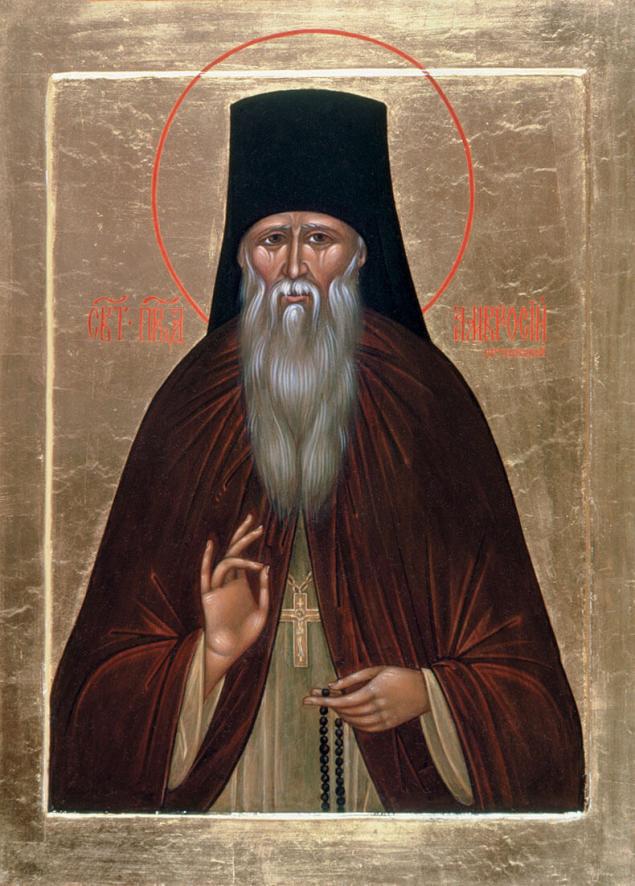
What's the most important thing God looks at the inner prayerful mood of the human soul, the elder said: "Come once to the above mentioned father Abbot Anthony one bad leg and said, "Father, my feet hurt, can't put bows and it embarrasses me." Father Anthony replied, "Yes, it says in the Scriptures: her Son, grant me a heart, not legs"".
How prayer changes the bloodthe Mystery of the prayer "our father"
"Why do people sin?" — sometimes the elder asked the question, and he solved it: "Either because I do not know what should do and what to avoid, or if they do, they forget; if you don't, forget, get lazy, lose heart. On the contrary, as people are very lazy to deeds of piety, you will very often forget about their main duty — to serve God; from laziness and oblivion to reach the extreme of folly or ignorance.
It's three giant discouragement or laziness, forgetfulness and ignorance which are connected to the entire human race in the bonds of indecision. And then has to be negligence with all the Assembly of evil passions. So we pray to the Queen of Heaven: most-Holy mistress Theotokos, Your Holy and all-powerful prayers otzheni from me, serennia and wretched servant, despondency, forgetfulness, folly, carelessness, and all the bad, evil and blasphemous thoughts...".published
Archimandrite Agapit (Milovidov)
Source: www.pravoslavie.ru/98034.html
Counsel of elder Ambrose of Optina
Publish an excerpt from the book of the publishing house of the Sretensky monastery: "the Biography of Optina elder Ambrose Hieroschemamonk Ambrose".
The advice and guidance of their own, which the elder Ambrose used the soul came to him with faith, he taught, or often in private conversation, or in General to all around him in the form of a very simple, sketchy, and often humorous. It should be noted that a joking tone in the elder's instructional speech was his trademark.

"How to live?" heard a man on all sides common and very important question. As usual he answered jokingly: "to Live — not to grieve, no one to condemn, no one to annoy and show respect to all". This storchevoy the tone of speech is often evoked a smile on the lips of the frivolous listeners. But if more serious to go into this instruction, each will see in it a profound meaning.
"Do not grieve" — i.e. that the heart is not fond of the inevitable human afflictions and setbacks, heading for the one Source of eternal sweetness to God; through which people in countless and diverse troubles can calm yourself, tolerating, or "resigned". "Not to condemn" "not to offend". — Nothing usually between people judgmental and offensive-those twin offspring of destructive pride.
They are sufficient to relegate the human soul in the depths of hell, but they are more Elder Ambrose part and a sin are not considered. "Greetings and salutations" indicates the Apostle's commandment: to honor one another (ROM 12: 10). Bringing all these thoughts to one General, we see that the above dictum was preached by elder primarily the humility, the basis of the spiritual life, the source of all virtues, without which, according to the teachings of St. John Chrysostom, as mentioned before, it is impossible to escape.
On the proposed elder General question: "How to live?" sometimes he answered slightly differently: "to live without hypocrisy and behave roughly; then our case will be true, otherwise will be bad".
"We have, — still spoke the old man to live on earth as the wheel turns: just only one point touches the ground, and the rest is sure to move on up; and we'll go down to the ground and can't stand up".
"Our salvation must s dress between fear and hope"
The question of how a righteous, knowing that they live according to the commandments of God ascended of his own righteousness, the elder replied: "They don't know what awaits them at the end." "Therefore, — he added, — our salvation should s dress between fear and hope. Nobody in any case should not despair, but should not hope too".
Question: can you seek perfection in the spiritual life? The answer of the elder: "Not only can you ask for, but should try to improve in humility, i.e., to consider themselves in the sense of the heart is worse and lower than all men and to every creature."

About patience: "When it annoys you, don't ever ask why. Scripture for it nowhere. So, on the contrary, it is said: if someone strikes you on Desnou the cheeks, turn to him the other also. In Desnou lanita actually hit uncomfortable, and it need to understand this: if who you slander the innocent, or something annoying, — it would mean the stress in Desnou the cheeks. Do not complain and take the blow patiently, substituting herein the left lanita, i.e., remembering their wrong deeds. And if, perhaps, you're innocent, then they've sinned a lot; and make sure that they are worthy of punishment."
If any of the brethren, cowardice and impatience, grieved that his not soon submit to the mantle, or ierodiakonou and ieromonachou, the old man used to say so in a warning: "This, brother, everything will come in due time, shall be given; kind deeds nobody will give".
"Not to indulge in irritability and anger, should not be in a hurry"
On irritability: "no One needs to justify their irritation with what else disease — it comes from pride. And the wrath of man according to the word of St. James the Apostle, worketh not the righteousness of God (Jas 1, 20). Not to indulge in irritability and anger, should not hurry."
Talking about envy and pamatskolai, the elder said, "you Have to force yourself, though against their will, to do any good to his enemies; and most importantly — not to avenge them and to be careful, something would somehow not offend their view of contempt and humiliation".
"Love, of course, above all. If you find that you don't have love, wish to have it, then do deeds of love, although at first without love. The Lord will see your desire and effort and heart of love."
"Who has a bad heart should not despair, because with God's help a person can correct his heart. Just be sure to follow him and not to miss the opportunity to be helpful to others, often to open the elder and to do all possible charity. This, of course, cannot be done suddenly, but the Lord is patient. Then he only ends the life of a man when he sees him ready to enter eternity or when he sees no hope for his correction."

Charity elder Ambrose said: "St. Dimitry of Rostov writes: if I come to you people on the horse, and asks of you, give him. He will use your charity, you are not responsible".
Again: "St. John Chrysostom says: start to give to the poor, you don't need that you have lying around; then he'll be able to give more and even depriving yourself, and finally be ready to give and all that you have."
The question of how to understand the words of Scripture: be wise as serpents (MT 10, 16), — the old man explained: "Snake, when you need it to change its old skin for a new one, goes through a very tight, narrow place, and thus it is convenient to leave your old skin: and a man, wishing to divert its decay must follow the narrow path of the gospel's commandments. At least the attack of the serpent is trying to protect his head. People should more often to protect their faith. Yet faith is saved, you can still fix everything."
"Atheists have no excuse"
"I spoke to the priest writes to his spiritual daughter, the same family that I am sorry for them all — they don't believe in anything, neither in God nor in the hereafter; it is a pity because they can be, and not blame themselves, they were brought up in such unbelief, or was it some other reason.
The priest shook his head and so angrily said, “Atheists have no excuse. After all, all decisively, and to the Gentiles preached the gospel; finally, by nature all of us from birth is embedded a sense of knowing God; therefore, they are to blame. Are you asking for people to pray? Of course, to pray for all of you”. “Father! I said after that. — Can't feel the future life is full of bliss one that close relatives will suffer in hell?”
And the priest said, “No, there that feeling will be gone: Pro all then forget. It is still on the exam. When you go to the exam, more scary and crowded, heterogeneous thoughts, and come, bought a ticket (with answer), about the forgotten,"".
Came to the elder a gentleman, not believing in the existence of demons. The master said, "your Will, father, I don't even know what it's for demons." To this the elder replied: "Because not everyone understands the math, but it exists."
About the laziness and despondency: "Boredom — depression grandson, and daughter Leni. To drive her away, in trouble, in prayer, do not be lazy; then boredom will pass and zeal will come. But if to this patience and humility add, that from the many evils will save".
About the insensitivity and fearlessness, about the sudden death of S., the father said, "Now death is not around the corner, and behind, and we at least count on the head teshi".
"Now death is not around the corner, and behind, and we at least count on the head teshi"
Another said: "If on one end of the village will hang up on the other end will not cease to sin, saying: we will not soon come".
About the power of repentance told me the following: "all have sinned and repented, and so all his life. Finally repented and died. The evil spirit came for his soul and says he is mine. God says: no, he repented. “Yes, because even though I repented and again I sinned,” continued the devil. Then the Lord said to him, “If you, being angry, took it again to himself after he repented to Me, then how can I not accept it after he sinned, again addressed to Me with repentance? You forget that you're angry, and I'm good"".

"It happens, — said the priest — that though our sins through repentance and forgiven us, but conscience does not cease to reproach us. The late elder father Macarius for comparison showed sometimes your finger, which long time ago was cut: the pain is long gone, but the scar remained. Exactly and after the forgiveness of sins, the scars remain, i.e., the reproaches of conscience."
"Even though the Lord forgives the sins of the penitent, but all sin requires punishment purification. For example, to the penitent thief Lord Himself said, to day shalt thou be with Me in Paradise (Luke 23, 48); whereas after these words broke his leg; and what was still in the same hands, with broken legs hang on the cross for three hours? So he needed a cleansing suffering. For the sinners who die immediately after repentance, the cleansing are the prayers of the Church and praying for them, and those who are still alive, they themselves must be cleansed by amendment of life and charity to cover sins."
"Cross (i.e., a purifying suffering, both spiritual and physical) God does not create. And no matter how grievous happens to that person cross that he carries in life, and yet the tree from which it is made, always grows on the soil of his heart". Pointing your heart, the priest added: "the Tree in izhodisca water — bubbling water there (passion)".
"When the people spoke the old man walks the straight path to him and the cross was gone. But when you forsake him and begin to rush in one direction and then the other, then are different circumstances, which pushed him back to the straight path. These jerks and make the person cross. They are, of course, different, who needs what".
"Sometimes sent to a person suffering innocently so that he, following the example of Christ, suffering for others. The Saviour himself first suffered for the people. His disciples also suffered for the Church and for the people. To have perfect love means to suffer for neighbors."
Words of another elder: "One brother asked the other: who taught you the Jesus prayer? So he says to the demons. — “But how?” "Yes, they bother me sinful thoughts, and I did Yes did the prayer, and used"".
One brother complained to the elder that during prayer a lot of different thoughts. The old man said, "I was Driving the man through the Bazaar; around him a crowd of people, the voices, the noise, and he to his horse: but-but! but-but! — so gradually-little by little and drove the entire market. And you, no matter what the thoughts, all their job to do — pray!"
That people do not remain in carelessness and not pinned all their hopes on outside help, the prayer, the elder repeated the usual popular saying: "God-help, and the man does not lie". And said, "Father! Through whom we ask it, not through you?" The elder replied: "And she ask; do you remember — the twelve apostles asked the Savior for a wife a Canaanite woman, but He did not hear them; and she begged, begged".
But as prayer is the strongest weapon against an unseen enemy, he is trying to distract from her man. Gave the old man a story: "On Athos, one monk was a Starling-talker, who the monk was very fond, and carried away by his talk. But that's strange: only the monk will begin to fulfill his rule of prayer, the Starling here and talk to you and does not pray to the monk.
Time for the glorious feast of the Resurrection, the monk approached the cage and said: “Skvorushka, Christ is risen!” And Starling responds: “that's just our misfortune that has risen,” and immediately died, and the monk's cell had spread unbearable stench. Then the monk realized his mistake and repented".

What's the most important thing God looks at the inner prayerful mood of the human soul, the elder said: "Come once to the above mentioned father Abbot Anthony one bad leg and said, "Father, my feet hurt, can't put bows and it embarrasses me." Father Anthony replied, "Yes, it says in the Scriptures: her Son, grant me a heart, not legs"".
How prayer changes the bloodthe Mystery of the prayer "our father"
"Why do people sin?" — sometimes the elder asked the question, and he solved it: "Either because I do not know what should do and what to avoid, or if they do, they forget; if you don't, forget, get lazy, lose heart. On the contrary, as people are very lazy to deeds of piety, you will very often forget about their main duty — to serve God; from laziness and oblivion to reach the extreme of folly or ignorance.
It's three giant discouragement or laziness, forgetfulness and ignorance which are connected to the entire human race in the bonds of indecision. And then has to be negligence with all the Assembly of evil passions. So we pray to the Queen of Heaven: most-Holy mistress Theotokos, Your Holy and all-powerful prayers otzheni from me, serennia and wretched servant, despondency, forgetfulness, folly, carelessness, and all the bad, evil and blasphemous thoughts...".published
Archimandrite Agapit (Milovidov)
Source: www.pravoslavie.ru/98034.html
As a simple way to solve the problem of back pain
The circulation of medicines in nature are excreted from the body medication again gets into the food
